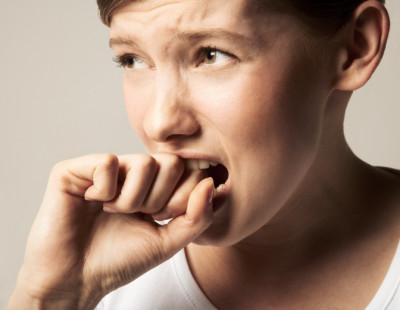BIG GAME ANXIETY
How we as parents can help our children with managing performance-related anxiety. Enrolling our children in extra-curricular activities like competitive athletics or performing arts has a number of indisputable benefits. Extra-curricular activities can help enhance a child’s self-confidence, provide opportunities for practicing time management, instill values of commitment and dedication, not to mention they underscore the importance of working cooperatively with others for the greater good of the team. But as anyone who has ever found himself at the free throw stripe with the big game on the line can tell you, the performance component of these activities can also stir up strong feelings of anxiety for any individual. As a former collegiate soccer player and lifelong competitive athlete, I know firsthand how performance-related anxiety can significantly thwart one’s ability to compete at his or her full potential. Which begs the question: what is our role as parents to help our children deal with the feelings of anxiety that so often accompany performance-related activities?
WHAT THE RESEARCH TELLS US
Performance-related anxiety often comes as a result of catastrophizing about the outcome of a future event, recalling a negative past experience that shares similar characteristics with the current situation, or a combination of both factors. Essentially, performance anxiety occurs when we desperately feel the need to control a situation that is, in reality, beyond our capacity for control (after all, we cannot change the past and we cannot ultimately predict the future). When it comes to children, performance-related anxiety can be exacerbated by the pressures to seek the approval of family members, the praise of a coach, or the adoration and acceptance of one’s peers.
For further insights into better understanding performance-related anxiety and what to do about it, I consulted with Dr. Shari Giti, Clinical Director of the South Bay Child and Family Therapy Center of Hermosa Beach, CA. In addition to her training as a child and adolescent clinical psychologist, Dr. Ghiti is also a professionally trained opera singer and expert in the treatment of performance-related anxiety in both children and adults. She states, “It is natural for most individuals to experience anxiety symptoms when in a performance-type situation…While it may seem that the goal of treatment for performance anxiety is to completely obliterate all anxiety symptoms, research has found that it is far more important for the individual to learn to manage and take control of the symptoms and use them to their advantage. In fact, optimal performance is produced with a moderate amount of anxiety.”
TIPS FOR HELPING YOUR CHILD MANAGE PERFORMANCE-RELATED ANXIETY
Practice Deep Breathing Exercises
Shortness of breath is a physiological symptom that often accompanies performance-related anxiety. Slowing the rate and increasing the depth of your breathing can send powerful, calming messages from your body to your brain that will allow you to focus more on the task at hand. Demonstrate for your child how to inhale through your nose for a count of four, followed immediately by exhaling through your mouth for a count of four. Repeat this exercise two to three times. Encourage your child to use this strategy at key times during a competition or performance (e.g. before stepping into the batter’s box).
Visualize Succeeding
Professional athletes and stage performers alike have stressed how visualizing a successful performance can help to reduce the level of anxiety they experience. Prior to a sporting event or other type of performance, help your child to visualize success by asking him to close his eyes and describe in detail the sensory experiences that accompany a successful performance (e.g. “I see the ball being pitched, I feel my bat hit the ball on the sweet spot, I heard the crowd cheer as I run around the bases.”)
Maintain Positivity Before, During, and After a Performance
Chances are that your child is already well aware of what’s at stake when it comes to a major performance-related event. Reassuring your child that you love them and you are proud of them regardless of the outcome of their performance may sound obvious, but its role in building your child’s confidence and self-esteem cannot be understated. Identifying specific, positive aspects of their performance (e.g. “I really noticed how much your swing is improving”) can help to reassure the child that you are invested and that you care.
Dr. Nate Balfanz is the Senior Clinical Psychologist at JJ-Premier Medical Care, a comprehensive mental and medical health service clinic for expat children, adolescents, adults, and families living in Shanghai. For more information on clinic services, contact Dr. Balfanz at: nbalfanzpsyd@jjpremier.com

